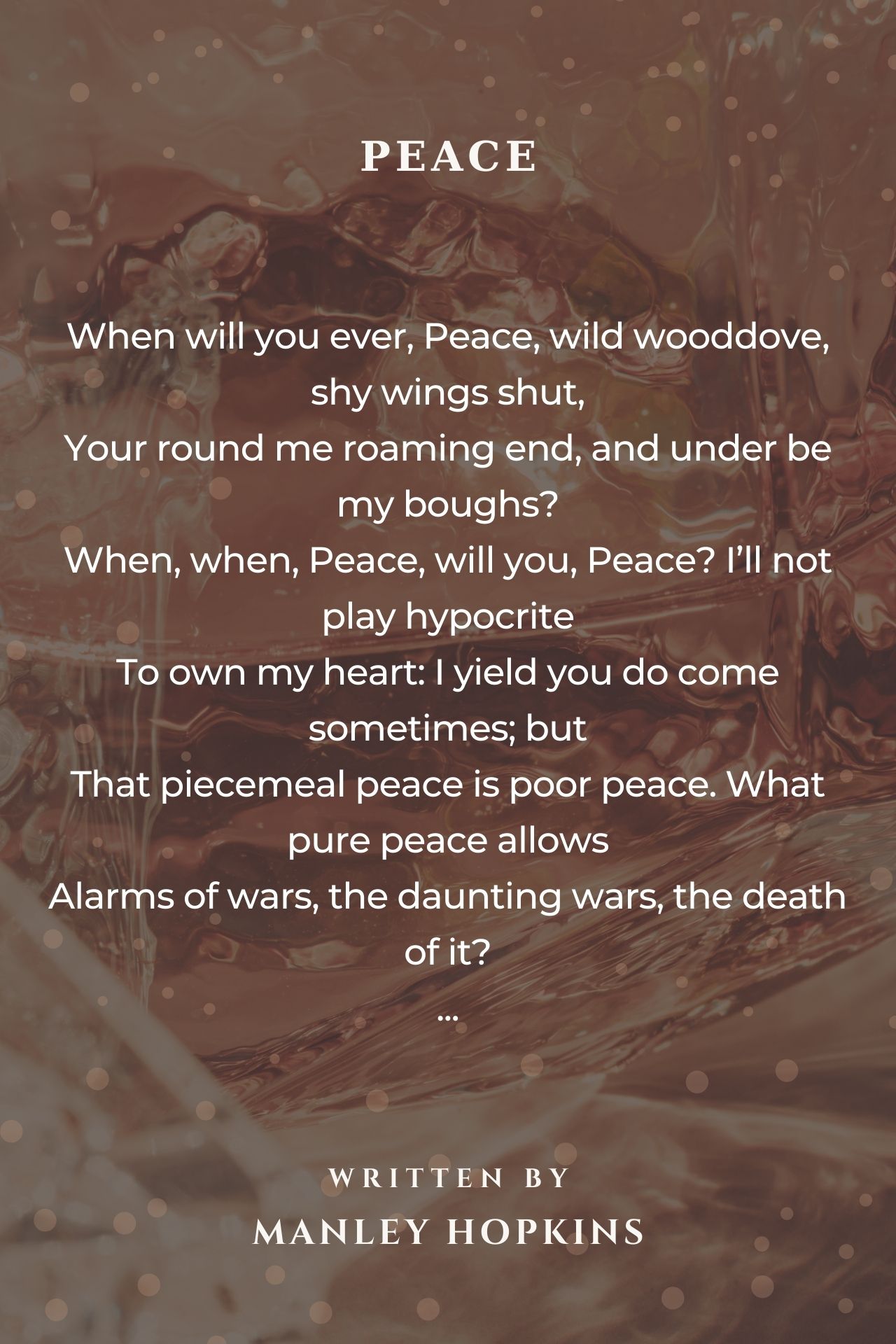Peace Poem by Gerard Manley Hopkins
Peace
When will you ever, Peace, wild wooddove, shy wings shut,
Your round me roaming end, and under be my boughs?
When, when, Peace, will you, Peace? I'll not play hypocrite
To own my heart: I yield you do come sometimes; but
That piecemeal peace is poor peace. What pure peace allows
Alarms of wars, the daunting wars, the death of it?
O surely, reaving Peace, my Lord should leave in lieu
Some good! And so he does leave Patience exquisite,
That plumes to Peace thereafter. And when Peace here does house
He comes with work to do, he does not come to coo,
He comes to brood and sit.

Perfect state of peace comes with a perfect elimination of war and all evil forces. I quote: That piecemeal peace is poor peace. What pure peace allows Alarms of wars, the daunting wars, the death of it?
The symbolic image of peace as is being idealised in the figure of the dove.
Emphatic expression of the poet stands separately in a style of his own quite unique!
Peace only prevails after total elimination of hate and seeking of power and pelf. These are causes of war and don't let nations and people live in peace. Thanks for sharing.
Particularly like the Old english 'reave'. Meter-maintenance through grammatically incorrect word placement (making every Hopkins poem a kind of puzzle) is very effective here. MM
This poem has not been translated into any other language yet.
I would like to translate this poem
Seeking for peace! Thanks for sharing.